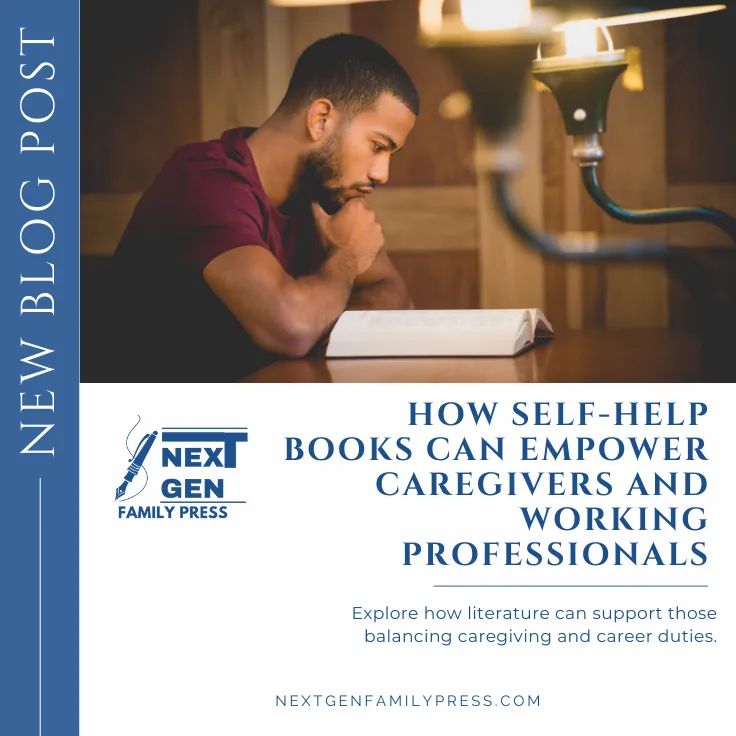
How Self-Help Books Can Empower Caregivers and Working Professionals
In today’s fast-paced world, juggling the demands of work and caregiving can feel overwhelming. Whether you're tending to an aging parent, supporting a child with special needs, or managing high-stress professional responsibilities, the emotional, physical, and mental toll can be immense. But what if a simple tool—readily available, affordable, and portable—could help you navigate these challenges with greater resilience, clarity, and purpose?
Welcome to the world of self-help books—a powerful yet often underutilized resource that can empower caregivers and working professionals alike.
Why Self-Help Books Matter
Self-help books aren't just motivational fluff or fleeting fads. When thoughtfully chosen and applied, they serve as practical guides to self-awareness, time management, emotional intelligence, and personal growth. For caregivers and busy professionals, these books can be lifelines—offering validation, coping strategies, and the encouragement needed to avoid burnout.
1. They Normalize Struggles
One of the most comforting realizations is that you are not alone. Many self-help books are written by people who have walked in your shoes—caregivers, overwhelmed parents, therapists, executives, or burnout survivors. By sharing their stories, these authors help normalize the emotional ups and downs that come with caregiving or career pressure.
Recommended read: “Burnout: The Secret to Unlocking the Stress Cycle” by Emily and Amelia Nagoski
2. They Offer Actionable Strategies
Good self-help books are solution-oriented. Whether you need to better manage your time, set boundaries, improve communication, or develop mindfulness, there’s a book out there with actionable advice.
Recommended read: “Atomic Habits” by James Clear – ideal for professionals and caregivers looking to build small, sustainable habits that lead to big results.
3. They Foster Emotional Resilience
Reading can be a form of self-care. A well-written self-help book can provide not just guidance but emotional replenishment. When your energy is spent caring for others or meeting deadlines, even ten minutes with the right book can help recentre your thoughts and lift your spirits.
Recommended read: “The Gifts of Imperfection” by Brené Brown – a guide to embracing vulnerability and imperfection, especially useful for caregivers who feel pressure to "do it all."
4. They Enhance Communication and Leadership Skills
Professionals in caregiving roles or leadership positions often need to navigate difficult conversations and decisions. Self-help literature focused on emotional intelligence, conflict resolution, and empathetic communication can significantly enhance your interpersonal effectiveness.
Recommended read: “Crucial Conversations” by Patterson, Grenny, McMillan, and Switzler – essential for both the workplace and personal life.
5. They Encourage Self-Reflection and Growth
At their core, self-help books ask readers to pause, reflect, and recalibrate. They encourage questions like: What do I value most? Am I living in alignment with those values? What needs to change? For caregivers and professionals, this introspection is not just helpful—it’s necessary for long-term wellbeing.
Final Thoughts: Choose with Intention
Not all self-help books are created equal. Look for titles grounded in research, written by credible authors, or recommended by trusted sources. Explore different genres—memoirs, guides, or workbooks—depending on what resonates with you.
Remember: Reading a self-help book isn’t about “fixing” yourself. It’s about empowering yourself—to find clarity in chaos, build strength through struggle, and embrace your role with confidence and compassion.